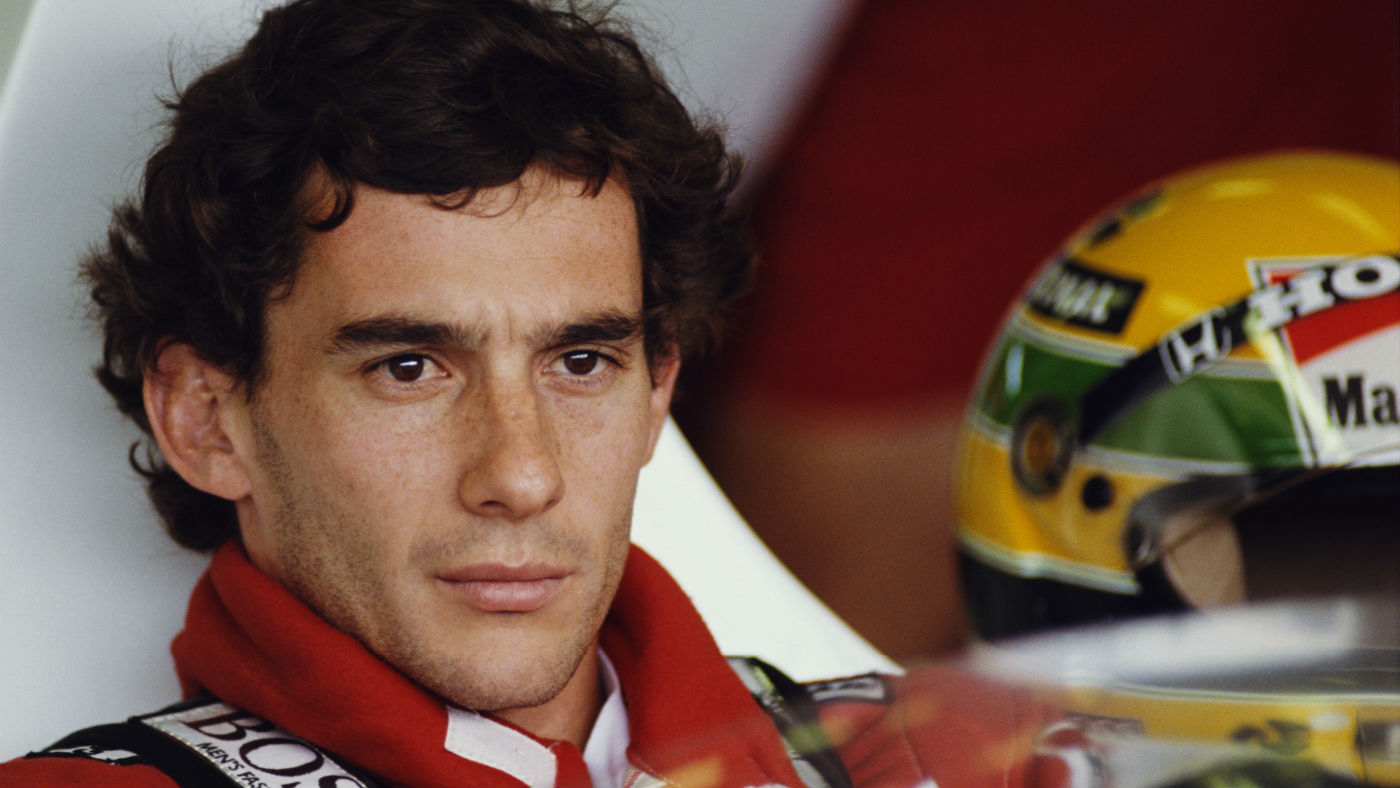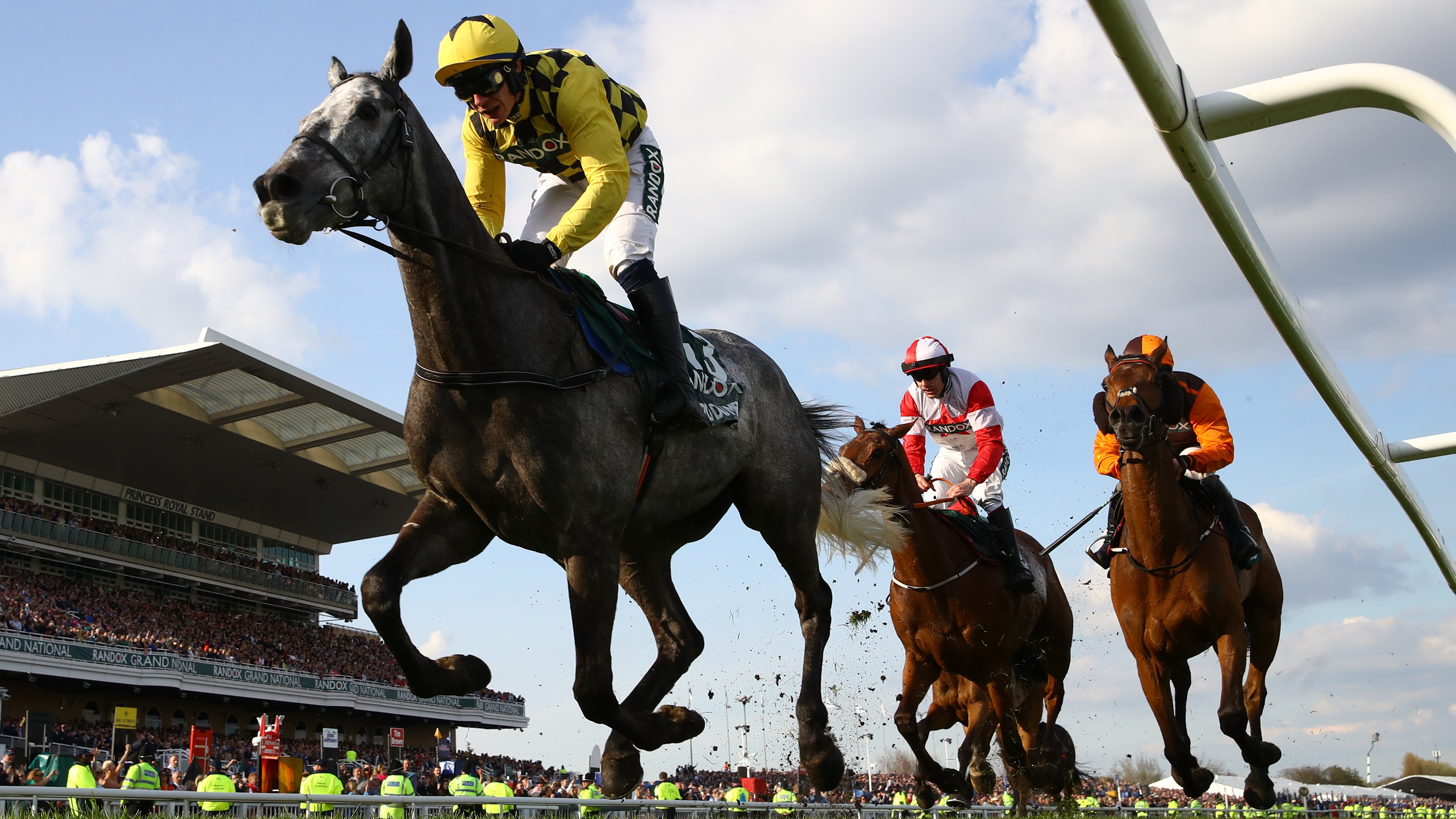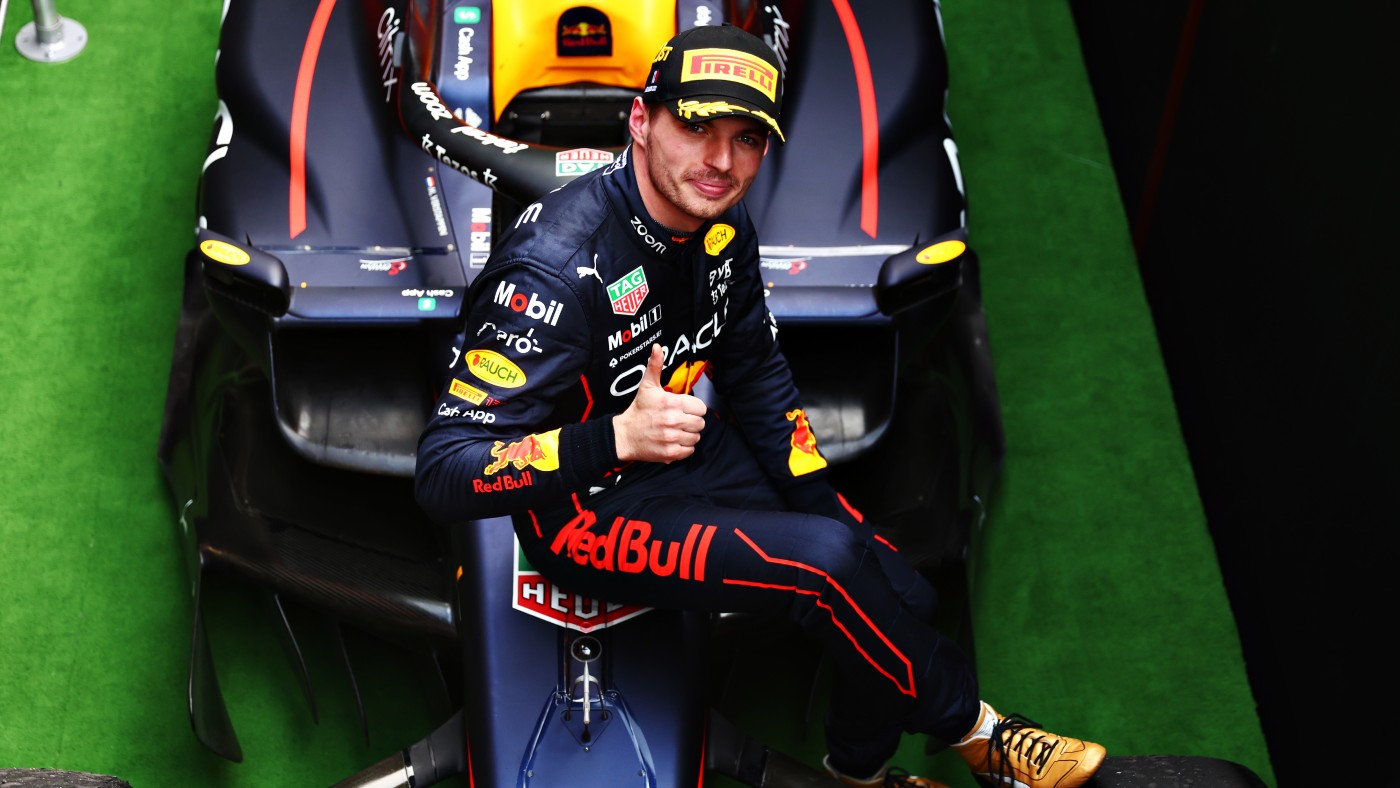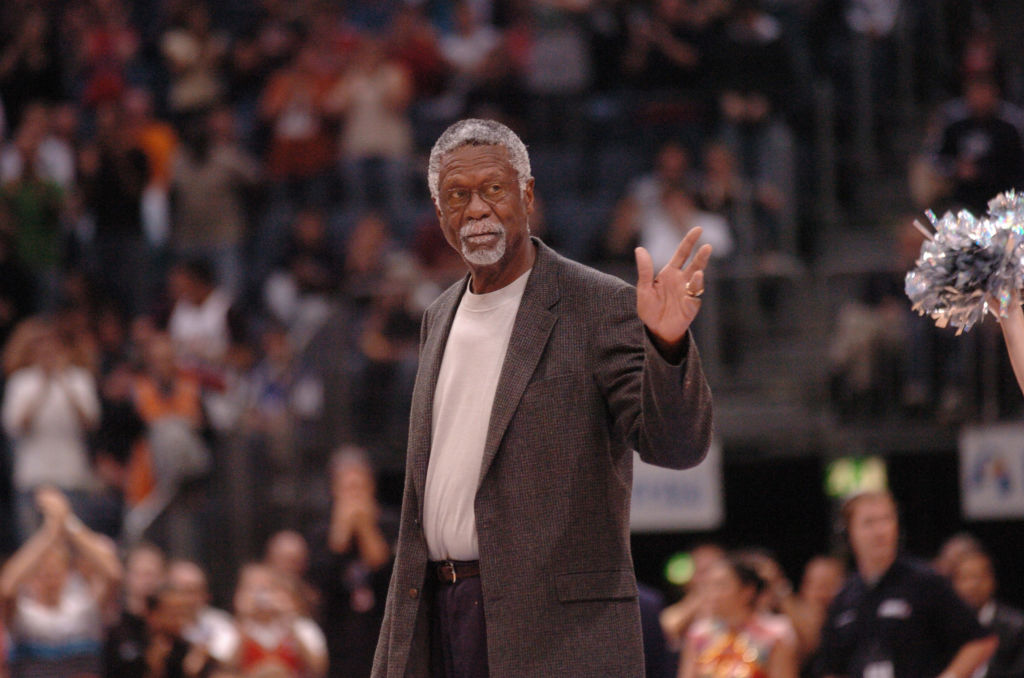Why everyone’s talking about Ayrton Senna
Formula 1 pays tribute to the iconic driver on the 25th anniversary of his death

A free daily email with the biggest news stories of the day – and the best features from TheWeek.com
You are now subscribed
Your newsletter sign-up was successful
On 1 May 1994 the sporting world lost an icon when Formula 1 driver Ayrton Senna was killed in a crash at the San Marino Grand Prix.
Described as a “Racer. Hero. Legend” by F1.com, the Brazilian remains one of sport’s biggest names, even 25 years since his death at Imola.
His record of 41 grand prix victories, 80 podiums and 65 pole positions makes him of the greatest drivers of all time.
The Week
Escape your echo chamber. Get the facts behind the news, plus analysis from multiple perspectives.

Sign up for The Week's Free Newsletters
From our morning news briefing to a weekly Good News Newsletter, get the best of The Week delivered directly to your inbox.
From our morning news briefing to a weekly Good News Newsletter, get the best of The Week delivered directly to your inbox.
A three-time world champion - in 1988, 1990 and 1991 - Senna’s death at the age of 34 shook the sport to its core.
In Senna’s homeland his passing was considered a national tragedy and three days of mourning were declared.
The Guardian reported that on the day of his funeral one million Brazilians mourned their golden boy. “São Paulo came to a standstill as young and old, rich and poor, said goodbye to the man they all idolised,” the newspaper said.
On the 25th anniversary of the icon’s death reigning F1 world champion Lewis Hamilton led the tributes.
A free daily email with the biggest news stories of the day – and the best features from TheWeek.com
The British driver, who was nine years old when Senna died, said: “I grew up watching videos of him. He’s the most iconic driver we’ve had. He was the most iconic individual, a real leader and a master of his craft. [Senna] was the driver who inspired me as a kid and he’s still a hero today. And he always will be.”
French driver Alain Prost, who was so often a bitter rival of Senna, spoke to Motorsport.com about how their relationship changed from being a fued to friendship.
“I don’t keep the bad moments or any bad souvenirs in my mind about him,” said Prost. “I keep the last six months [of his life] in mind. That’s when I knew Ayrton much more than ever before. He was a completely different person, I understood who he was and why he was acting sometimes.”
What happened?
Ahead of the 1994 season Senna had said: “The cars are very fast and difficult to drive. It’s going to be a season with lots of accidents and I’ll risk saying we’ll be lucky if something really serious doesn’t happen.”
Imola 1994 was a “dark and traumatic weekend” for Formula 1, says Sky Sports, with two drivers losing their lives in San Marino. In qualifying Roland Ratzenberger was killed after an accident then the following day Senna died.
Driving for Williams Senna crashed on lap seven at the high-speed Tamburello corner. He ran in a straight line off the track and his car hit a concrete wall.
Writing on F1.com, journalist David Tremayne said: “The weekend when God turned his back. That is how I will forever remember the 1994 San Marino Grand Prix.”

What was the response?
Newspapers around the world reported on the incidents in San Marino. The Daily Mail’s front page headline on 2 May 1994 read “death of a champion” while Autosport magazine asked the question “why did it happen?” as the FIA started its inquiry into the Imola tragedy.
Not only did Senna and Ratzenberger lose their lives at Imola but Rubens Barrichello was also involved in a heavy crash during that dark weekend.
The Chequered Flag reports that following the San Marino GP the FIA “jumped to immediate action, and brought in a number of safety amendments for the very next race on the calendar, which are still in use today, and have no doubt saved countless lives since”.
In 2017 Damon Hill, Senna’s team-mate at Williams, spoke to BT Sport’s Clare Balding about the impact the death had on safety in Formula 1.
British driver Hill, who won the 1996 championship, said: “It was a sort of 9/11 moment for Formula 1, they swept in and they said ‘okay we can’t afford to be seen as reckless, there’s too much at stake’, so they immediately enforced a lot of changes in the sport.
“I would say the changes they brought in since… probably certainly saved my legs, probably saved my life as well.”
Legacy lives on
Not only has his death seen safety improve in Formula 1 but his legacy lives on in Brazil with the Ayrton Senna Institute.
For more than 20 years the Institute has worked to bring education to millions of Brazilian children and young people. Its mission is to “develop a human being as a whole, preparing them for life in the 21st century in all its aspects”.
His life and death was also captured in the 2010 documentary, Senna. Directed by Asif Kapadia, the film won two Bafta awards.
Aside from the F1 safety improvements, the work of his Institute and the film, Senna will forever be remembered as a racing legend.
“Every era has someone who changes the sport and he was one of those people,” said former team-mate Damon Hill, who is now a pundit for Sky Sports F1.
BBC Sport F1 writer Andrew Benson said: “His appeal, the global fascination in him, lay not just in his staggering talent, but also in the depth and complexity of his personality. Yes, he was one of the greatest racing drivers the world has ever seen. Perhaps the greatest. But he was so much more than that.
“He possessed a charisma so compelling it could silence a room. He could be magnetic to listen to. Immensely intelligent, he was a philosopher with a willingness to provide a window into the dangers of his profession, his own sense of mortality, and how that affected him.”
Twitter tributes to an F1 icon
-
 Can the NBA survive the FBI’s gambling investigation?
Can the NBA survive the FBI’s gambling investigation?Talking Points A casualty of the ‘sports gambling revolution’
-
 Andy Murray: Britain's greatest sportsperson?
Andy Murray: Britain's greatest sportsperson?Talking Points Injury denies Scot a final singles appearance at Wimbledon but his place in history is assured
-
 Olympics 2024: is Paris ready to party?
Olympics 2024: is Paris ready to party?Talking Points Build-up to this summer's Games 'marred' by rows over national identity, security and pollution
-
 Grand National: will safety changes work?
Grand National: will safety changes work?Talking Point UK's most famous horse race brings in new welfare measures amid increased scrutiny
-
 Christian Horner and the Red Bull saga that refuses to go away
Christian Horner and the Red Bull saga that refuses to go awayIn the Spotlight 'Too dizzy-making' even for the 'merry-go-round world of F1'
-
 Max Verstappen: F1’s record-breaking world champion
Max Verstappen: F1’s record-breaking world championIn the Spotlight Red Bull star has surpassed records set by Schumacher, Vettel and Hamilton
-
 Bill Russell's legacy
Bill Russell's legacyTalking Point The brilliant team player who backed down to no one, on and off the court
-
 F1 ‘silly season’ hits top speed as 2023 grid takes shape
F1 ‘silly season’ hits top speed as 2023 grid takes shapeUnder the Radar Twitter explodes with news of driver moves, denials and rumours


